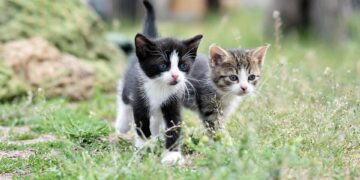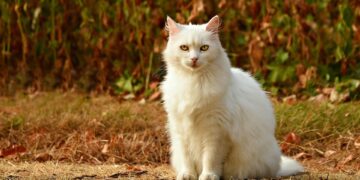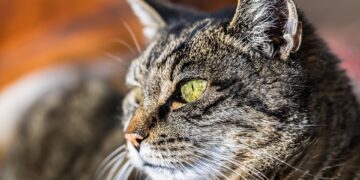Purr-fectly Nutritious: The Ultimate Guide to Cat Health Food
When it comes to keeping your feline friend healthy and happy, proper nutrition is key. Just like humans, cats require a balanced diet to thrive and maintain optimal health. In this comprehensive guide, we will explore the importance of feeding your cat nutritious food, the essential nutrients they need, common questions about cat health food, and tips for choosing the best food for your furry friend.
The Importance of Proper Nutrition for Cats
Proper nutrition is essential for cats to maintain a healthy weight, support their immune system, and prevent a variety of health issues. Cats are obligate carnivores, which means they require a diet high in protein to thrive. A lack of essential nutrients can lead to a range of health problems, including obesity, diabetes, and heart disease.
Feeding your cat a balanced diet that meets their nutritional needs is crucial for their overall well-being. High-quality cat food should provide the right balance of protein, fats, carbohydrates, vitamins, and minerals to support your cat’s health and longevity.
Essential Nutrients for Cats
There are several key nutrients that cats need to stay healthy:
Protein
Protein is the most important nutrient for cats, as they require higher levels of this macronutrient compared to other animals. Cats need protein to support their muscles, organs, and immune system. Look for cat food that lists a high-quality source of protein, such as chicken, fish, or turkey, as the first ingredient.
Fats
Fats are an essential source of energy for cats and help support healthy skin and coat. Omega-3 and Omega-6 fatty acids are especially important for cats, as they help reduce inflammation and support brain health. Look for cat food that contains sources of healthy fats, such as fish oil or chicken fat.
Carbohydrates
While cats do not require carbohydrates in their diet, some carbohydrates can be beneficial for providing energy and fiber. Look for cat food that contains digestible carbohydrates, such as rice or sweet potatoes, in moderation.
Vitamins and Minerals
Vitamins and minerals play a crucial role in supporting your cat’s overall health. Look for cat food that is fortified with essential vitamins and minerals, such as vitamin E, vitamin D, and taurine, to ensure your cat is getting all the nutrients they need.
Common Questions About Cat Health Food
How much should I feed my cat?
The amount of food you should feed your cat depends on their age, weight, and activity level. It’s important to follow the feeding guidelines on the cat food packaging and adjust as needed based on your cat’s individual needs.
Should I feed my cat wet or dry food?
Both wet and dry cat food can be nutritious options for your cat. Wet food can help keep your cat hydrated and is often more palatable, while dry food can help support dental health. It’s best to offer a combination of both wet and dry food to provide your cat with a variety of textures and flavors.
Are homemade diets safe for cats?
Homemade diets can be a risky option for cats, as it can be challenging to ensure they are getting all the nutrients they need. If you are considering a homemade diet for your cat, it’s essential to consult with a veterinarian or animal nutritionist to ensure the diet is balanced and meets your cat’s nutritional needs.
Tips for Choosing the Best Cat Food
When choosing cat food for your furry friend, it’s essential to consider the following factors:
Read the ingredients list
Look for cat food that lists a high-quality source of protein as the first ingredient and does not contain artificial additives or fillers.
Consider your cat’s age and health needs
Cats have different nutritional requirements at different life stages. Consider your cat’s age, weight, and any health conditions when selecting cat food.
Consult with your veterinarian
Your veterinarian can provide valuable insight into your cat’s nutritional needs and recommend the best cat food for your furry friend.
Conclusion
Feeding your cat a nutritious diet is essential for their overall health and well-being. By providing your cat with a balanced diet that meets their nutritional needs, you can help prevent a variety of health issues and ensure they live a long and healthy life. Remember to consider your cat’s individual needs, consult with your veterinarian, and choose high-quality cat food to keep your furry friend purring with joy.
With the information provided in this guide, you can make informed decisions about the best cat food for your feline friend and ensure they receive the nutrients they need to thrive. Here’s to happy and healthy cats!











































